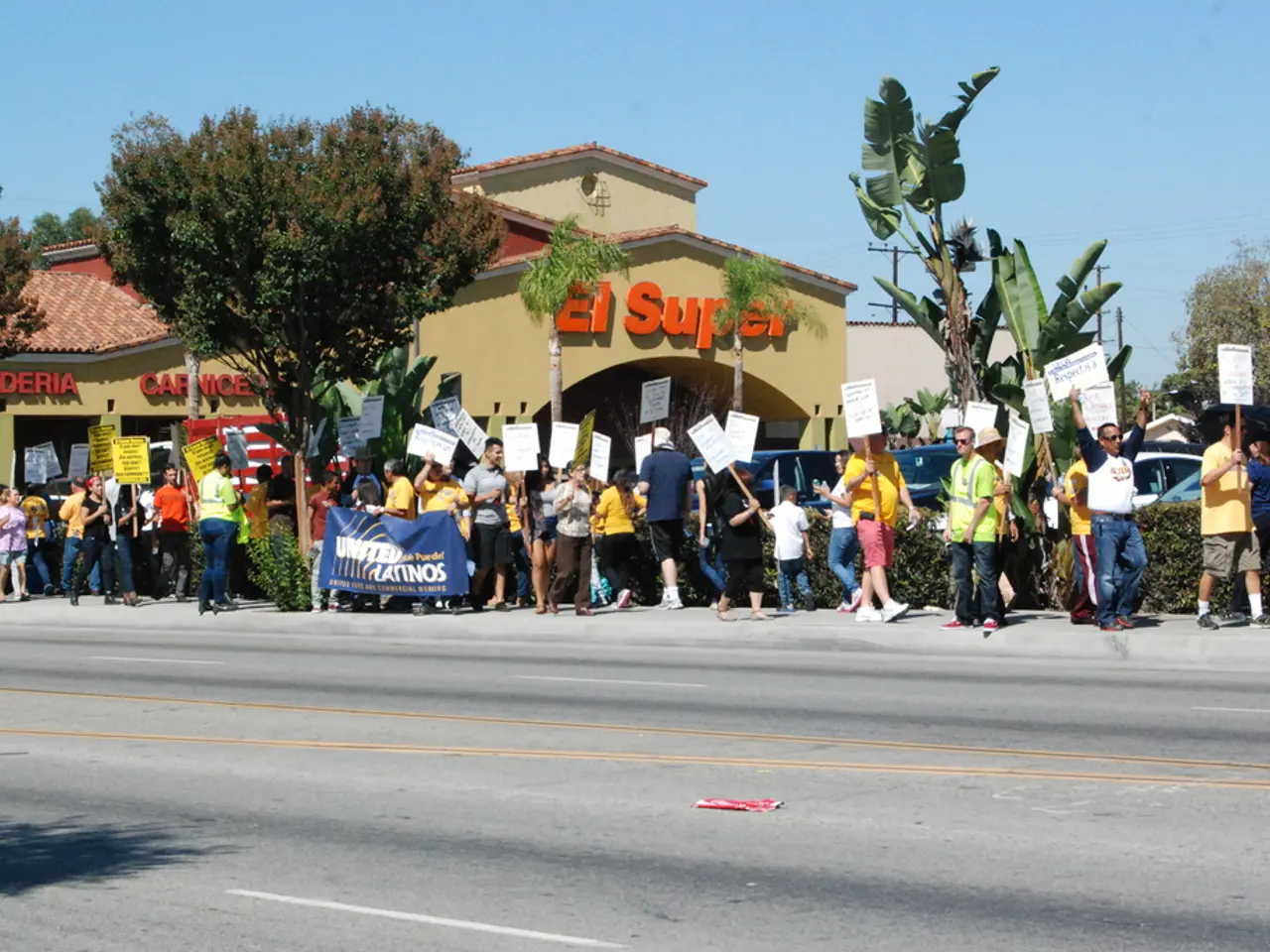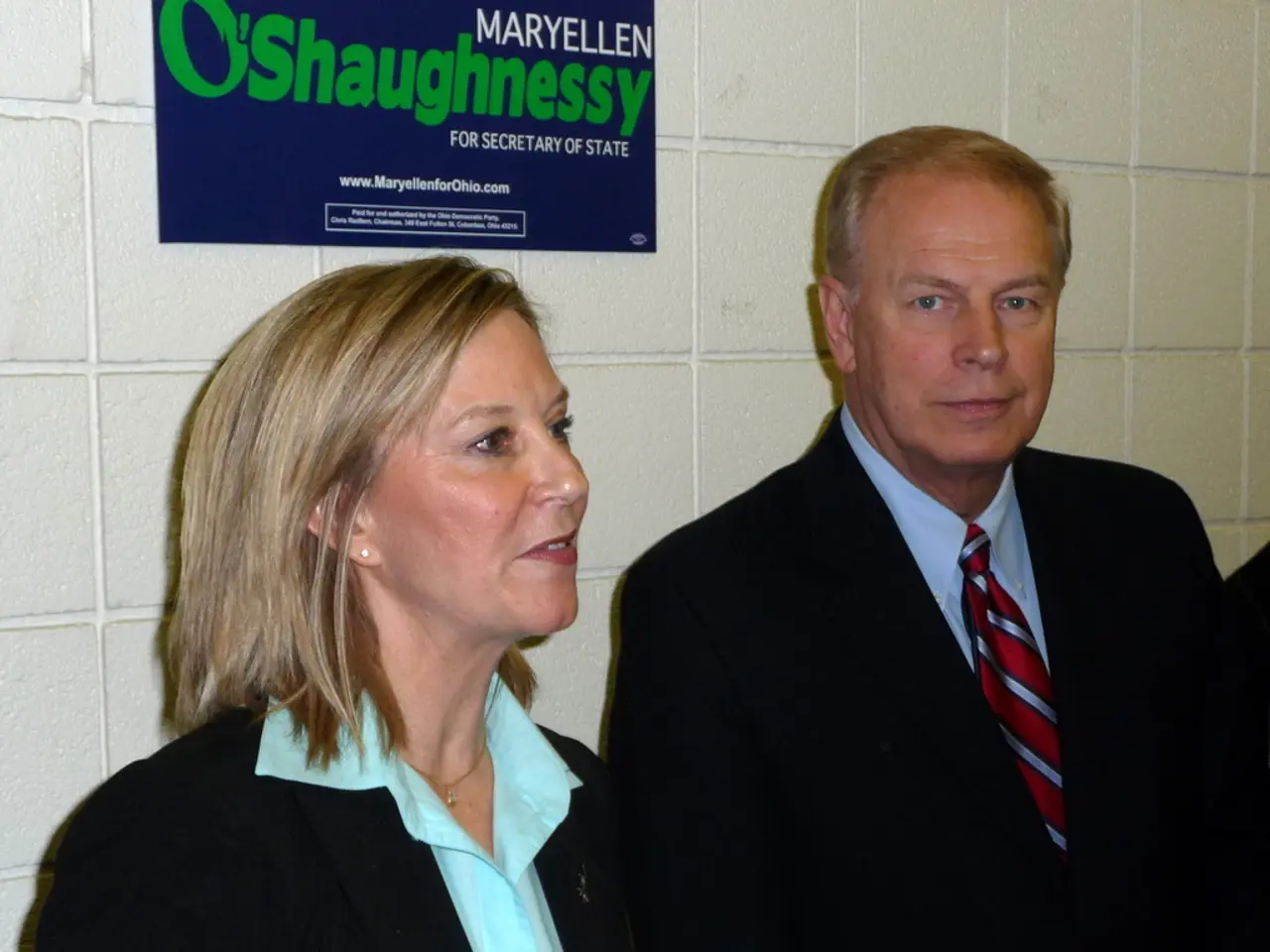Previous Labour Minister Müntefering labels Reich's action as pure absurdity
In a public debate that has been gaining momentum, Federal Economics Minister Katherina Reiche has called for more and longer work from Germans. Reiche's argument is centred around demographic changes, economic competitiveness, and the sustainability of social security systems.
According to Reiche, the rising life expectancy and demographic shifts make it "unavoidable" to extend working life, as the current model of working two-thirds of adult life and retiring for one-third is unsustainable in the long term. She points out that Germans work fewer hours annually (about 1,340) compared to countries like the United States (about 1,800 hours), and warns that current reforms will not suffice to keep social security systems solvent.
Reiche also highlights that non-wage labor costs, taxes, and levies make German labor uncompetitive internationally. She suggests that longer work hours could help address this issue.
However, the call for more and longer work has faced criticism, not only from the opposition but also from critics within Reiche's own party (CDU). The former federal labor minister, Franz Müntefering of the SPD, rejects the demand as too simplistic.
Müntefering believes that people today enter the workforce later than in his time, live longer, and remain healthy longer. He notes that more and more people want to work beyond the statutory retirement age. Müntefering suggests finding more individual rules for work and retirement, and supports discussions about more flexible transitions into retirement.
Müntefering also points out that the 67 retirement age, introduced in 2006, might need to be adjusted. He believes that people are different, have different talents and abilities, and are healthy in different ways.
The German Trade Union Confederation (DGB) shares similar concerns, warning against simply raising the retirement age. They stress that pension funding should be supported more by increased contributions and tax revenue rather than longer work alone.
Christian Bäumler, from Reiche's Christian Democratic party own workers association, criticizes her for not acknowledging Germany's high rate of part-time employment, which contributes to the overall shorter average working hours. He contends that her remarks were not supported by the coalition agreement and that the minister failed to recognize essential structural factors influencing working hours.
Analyses outside this immediate political debate suggest that shorter workweeks (e.g., around 37 hours) could lead to welfare gains and higher worker satisfaction, which contrasts with Reiche’s call for longer hours. This implies social and economic complexity around adjusting working time policies in Germany.
In conclusion, while the proponents argue for longer work hours based on economic necessity and demographic realities, the opponents emphasize fair labor practices, structural realities like part-time work prevalence, and prefer pension reforms financed by contributions and taxes rather than extending work hours or retirement age. The debate continues, with both sides presenting compelling arguments.
[1] Tagesspiegel Interview with Katherina Reiche [2] SPD Criticizes Reiche's Call for More and Longer Work [3] DGB's Response to Reiche's Call for More and Longer Work [4] Shorter Workweeks and Their Impact on Welfare and Worker Satisfaction in Germany
- In response to Federal Economics Minister Katherina Reiche's proposal for more extended and frequent work hours as a solution to economic and demographic challenges, policy discussions about vocational training programs aimed at improving the flexible workforce and addressing labor competitiveness have arisen within the context of policy-and-legislation and politics.
- General news outlets have reported on the ongoing debate regarding Reiche's call for labor reforms, with critics, including former federal labor minister Franz Müntefering and the German Trade Union Confederation, advocating for a focus on fair labor practices, individual work rules, increased contributions to pension funding, and acknowledgment of structural factors like part-time work prevalence, rather than a simple extension of work hours or retirement age.








